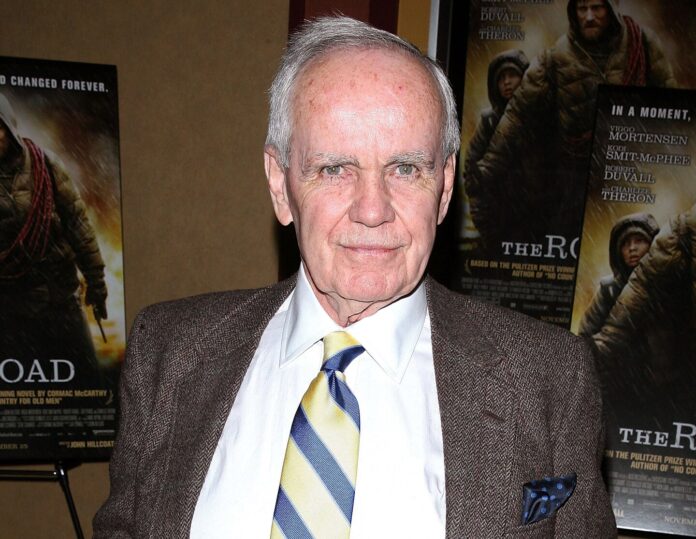“Blood Meridian” (1985). It would be hard to decide on McCarthy’s most violent novel, but this one is a strong contender. It’s arguably his most renowned novel, featuring his most (in)famous character, Judge Holden, who leads a gang in massacres across the Mexico-Texas borderlands, dancing all the while. In his review for The Post, Jonathan Yardley summarized the plot this way: “A bunch of men ride around for a while, they camp for a while, they philosophize for a while, they kill for a while. It’s all in a day’s work, but it sure makes for a slow day.” The critic Harold Bloom, though, once declared it “the ultimate western,” solidifying McCarthy as “the worthy disciple both of Melville and of Faulkner.”
“Suttree” (1979). In his fourth novel, McCarthy in part draws on his own life, turning his eye to often dissolute river-dwellers in Knoxville, Tenn. Though contemporary critics were sometimes skeptical, it attracted attention in part for its often expansive language. “At times Mr. McCarthy’s picture of hell becomes bloated and strained with thick, gassy language,” Jerome Charyn wrote in his review for the New York Times, before adding: “But the bombast disappears as quickly as it arrives, and Mr. McCarthy creates images and feelings with the force of a knuckle on the head.” The Post’s review, meanwhile, compared the novelist to “some latter-day Virgil with an unabridged dictionary” who “guides us with his images through the netherworld.”
“All the Pretty Horses” (1992). The first installment of the Border Trilogy, this is McCarthy at his most accessible and his most classicizing: There’s a 16-year-old boy (John Grady Cole), his horse and the road to Mexico; there are friends who die, and a girl who breaks his heart. The Post’s reviewer said at the time that it “has as much action and excitement as a Zane Grey story,” without sacrificing literary ambition: “In an age of TV, he is its antithesis. He is moonshine whisky, clear and raw and potent, in a world more accustomed to Lite Beer and Diet Coke.”
“The Crossing” (1994). The sequel followed a different group of teens — this time, brothers Billy and Boyd Parham — on their journey south. This novel explores ecological themes as expressed in encounters between humans and animals: Its richest, strangest central relationship is between Billy and a pregnant wolf. “Some women found ‘Pretty Horses’ boringly macho, too much a boys’ adventure,” The Post’s Michael Dirda wrote in his review. “This one may remind them, at times, of a magic-realist issue of Field and Stream.”
“The Road” (2006). Arguably McCarthy’s first, oblique foray into science fiction, this brief, bleak novel follows a father and son’s struggle to survive after an unnamed apocalypse. “‘The Road’ is a frightening, profound tale that drags us into places we don’t want to go, forces us to think about questions we don’t want to ask,” The Post’s Ron Charles wrote in his review. Many readers might dismiss McCarthy’s grandiosity, he continued: “At first I kept trying to scoff at it, too, but I was just whistling past the graveyard.” For his part, director John Hillcoat, who adapted “The Road” for the screen in 2009, read it as a story of hope, he told The Post’s Travis M. Andrews in January. The novel won the Pulitzer Prize in 2007.
The early novels: “The Orchard Keeper” (1965), “Outer Dark” (1968), “Child of God” (1973). McCarthy’s first three novels had, if possible, an even darker, more harrowing vision of humanity and its place in the universe than his later work did. “Child of God,” in particular, which James Franco adapted into a feature film that The Post called “nauseating” (but also “mesmerizing”), will test a reader’s stomach for staring into the void.



